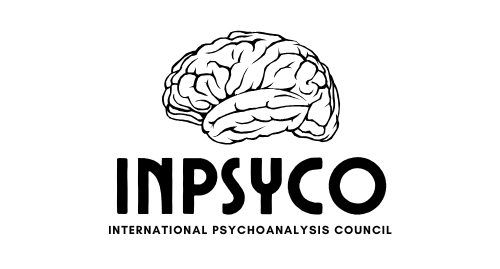Who We Are
The International Psychoanalysis Council (InPsyco) is a global institution dedicated to the regulation, promotion, and development of psychoanalysis as a science, a clinical practice, and a field of research. We serve as both a regulatory authority and a professional association, bringing together psychoanalysts, researchers, and training institutions from around the world.
Our primary mission is to ensure the highest ethical and scientific standards in psychoanalytic practice, education, and research. We uphold the integrity of psychoanalysis while fostering innovation and dialogue between diverse psychoanalytic traditions and cultural contexts.
Our History
InPsyco was founded to address the growing need for a truly international body capable of regulating psychoanalysis on a global scale. While many national and regional organizations exist, the lack of a unified global standard often led to inconsistencies in training, accreditation, and ethical oversight. InPsyco was established to fill this gap, creating a single platform that promotes both scientific rigor and cultural sensitivity.
Our founders included leading psychoanalysts, researchers, and educators who envisioned a council that would not only regulate the profession but also actively foster research, interdisciplinary dialogue, and the continuous development of psychoanalytic thought.
Our Mission and Vision
Mission:
To promote, regulate, and enhance the practice of psychoanalysis worldwide, ensuring it maintains the highest ethical and scientific standards while adapting to the evolving needs of contemporary society.
Vision:
To be the global reference in psychoanalytic regulation and professional development, fostering a pluralistic and scientifically grounded community of psychoanalysts.
What Makes InPsyco Unique?
-
Global Scope:
InPsyco brings together psychoanalysts and institutions from all continents, fostering dialogue between different cultural and theoretical traditions. -
Dual Function:
As both a regulatory body and a professional association, we ensure quality standards while also offering benefits, networking, and scientific opportunities to our members. -
Ethical and Scientific Oversight:
Our ethical guidelines are based on the best practices in psychoanalysis, psychology, and health sciences, ensuring the protection of patients, the dignity of professionals, and the advancement of knowledge. -
Commitment to Research:
InPsyco actively promotes research in psychoanalysis, encouraging empirical studies, theoretical advancements, and interdisciplinary projects that expand psychoanalysis’ scientific foundation. -
Pluralism and Open Dialogue:
We recognize and respect the diversity of psychoanalytic schools of thought, encouraging debate and dialogue rather than imposing a single theoretical model.
Our Core Activities
1. Accreditation and Regulation
We set international standards for psychoanalytic education and practice, accrediting both individual professionals and training institutions. Our accreditation process ensures that recognized psychoanalysts meet rigorous ethical, theoretical, and clinical criteria.
2. Ethics and Complaints Process
We provide a transparent process for handling ethical complaints and professional misconduct. Our Ethics Committee works independently to investigate complaints, ensuring fairness for both patients and professionals.
3. Scientific Promotion
Through our Research Division, InPsyco supports research projects, organizes conferences, and publishes scientific papers. We aim to bridge the gap between clinical practice and contemporary scientific research.
4. International Cooperation
Psychoanalysis has always been shaped by international exchange. InPsyco partners with national associations, universities, and research centers, facilitating cross-border collaboration and recognition of training.
5. Membership and Community Building
As a professional association, InPsyco offers a wide range of benefits to members:
- Inclusion in our global directory of psychoanalysts
- Access to exclusive research publications and events
- Opportunities to participate in committees and working groups
- Continuous education programs and professional development
Our Commitment to Diversity and Inclusion
Psychoanalysis operates at the intersection of individual subjectivity and cultural context. InPsyco is committed to fostering a community that reflects the cultural, linguistic, and theoretical diversity of our global society. We actively promote inclusion across gender, race, ethnicity, religion, and sexual orientation, ensuring that psychoanalysis remains relevant and sensitive to all human experiences.
The Future of Psychoanalysis and Our Role
Psychoanalysis has evolved significantly since its origins, incorporating new insights from neuroscience, developmental psychology, trauma studies, and cultural theory. InPsyco sees this evolution not as a threat but as an opportunity. We believe the survival and relevance of psychoanalysis depend on its ability to maintain scientific rigor while embracing innovation.
As mental health challenges become more complex in the 21st century—ranging from digital addiction to climate anxiety—the need for deep, reflective therapeutic approaches like psychoanalysis grows. InPsyco aims to ensure that psychoanalysis remains a vital, scientifically respected, and ethically sound field, capable of addressing both individual suffering and broader cultural questions.
Governance and Structure
InPsyco operates through a Board of Directors, elected from its global membership. Specialized committees oversee key areas such as accreditation, ethics, research, and education. Members are encouraged to actively participate, ensuring that InPsyco remains responsive to the needs of the psychoanalytic community.
Join Us
Whether you are an experienced psychoanalyst, a student beginning your training, a researcher exploring the unconscious, or an institution seeking accreditation, InPsyco invites you to join us in building a strong, ethical, and innovative future for psychoanalysis.
Together, we ensure that psychoanalysis not only honors its rich past but continues to evolve, contributing to the understanding of human subjectivity in a changing world.
International Psychoanalysis Council
Regulation. Science. Ethics.
